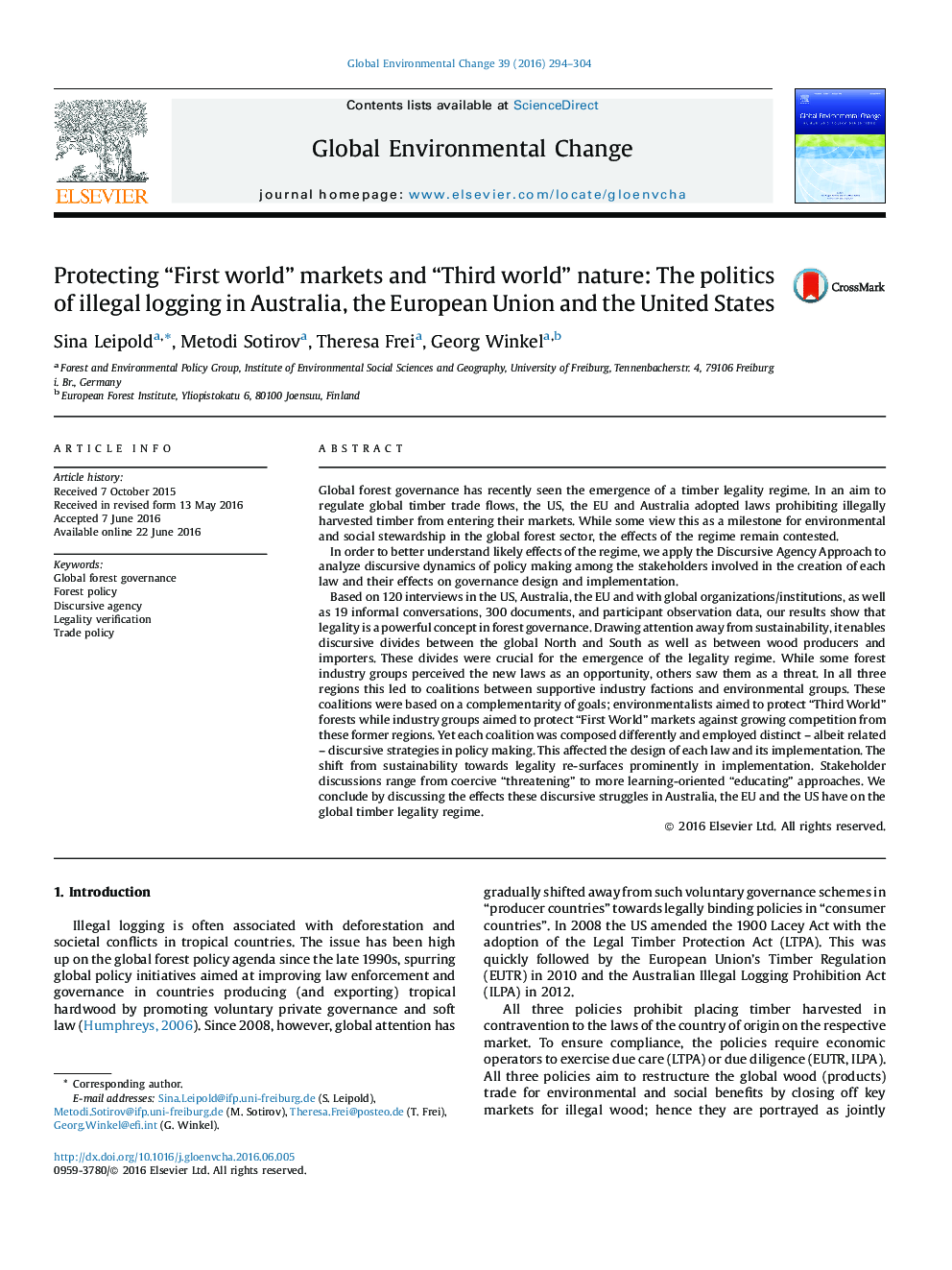| Article ID | Journal | Published Year | Pages | File Type |
|---|---|---|---|---|
| 7469450 | Global Environmental Change | 2016 | 11 Pages |
Abstract
Based on 120 interviews in the US, Australia, the EU and with global organizations/institutions, as well as 19 informal conversations, 300 documents, and participant observation data, our results show that legality is a powerful concept in forest governance. Drawing attention away from sustainability, it enables discursive divides between the global North and South as well as between wood producers and importers. These divides were crucial for the emergence of the legality regime. While some forest industry groups perceived the new laws as an opportunity, others saw them as a threat. In all three regions this led to coalitions between supportive industry factions and environmental groups. These coalitions were based on a complementarity of goals; environmentalists aimed to protect “Third World” forests while industry groups aimed to protect “First World” markets against growing competition from these former regions. Yet each coalition was composed differently and employed distinct - albeit related - discursive strategies in policy making. This affected the design of each law and its implementation. The shift from sustainability towards legality re-surfaces prominently in implementation. Stakeholder discussions range from coercive “threatening” to more learning-oriented “educating” approaches. We conclude by discussing the effects these discursive struggles in Australia, the EU and the US have on the global timber legality regime.
Related Topics
Life Sciences
Environmental Science
Environmental Science (General)
Authors
Sina Leipold, Metodi Sotirov, Theresa Frei, Georg Winkel,
